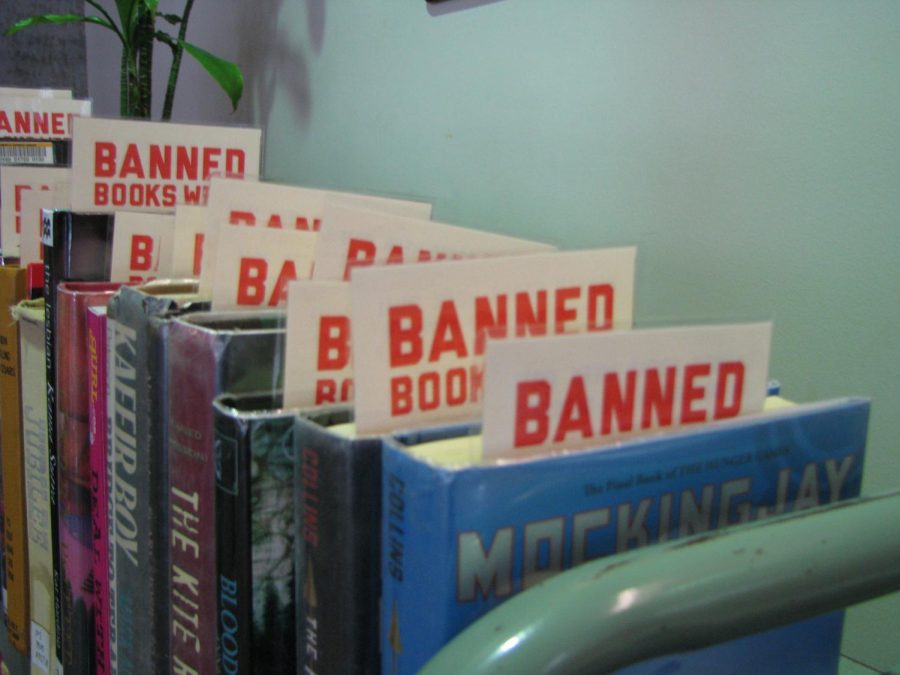Waging war on books in the digital age is futile
May 6, 2022
Reading is a universally beloved activity that has the power to bring people together. However, the United States has a history of censoring books which cover topics that some groups deem to be inappropriate or controversial.
However, imposing political, social or religious beliefs onto libraries and reading lists sets a frightening precedent.
Banning books should be treated as an infringement on freedom of speech for both the author of the books and the reader.
Similarly, attempts at censorship in the information age are already proving to be futile.
Recently released data by PEN America shows that over 1,500 books have been banned in 86 school districts across 26 states between July 2021 to March.
“This type of data has never been tallied and quite frankly the results are shocking,” Director of PEN America’s Free Expression and Education Jonathan Friedman said.
Freidman also pointed out that the majority of recipients of the countless book bans are nonwhite male authors.
“What is happening in this country in terms of banning books in schools is unparalleled in its frequency, intensity and success,” Friedman added.
However, Freidman’s statement does not acknowledge the extent of the bans, which have been particularly detrimental to non-white female authors as well as their male counterparts.
One of the most notable books to have faced scrutiny is “Gender Queer: A Memoir by Maia Kobabe,” which has been banned in 30 different school districts.
Another book includes “Out of Darkness” by Ashley Hope Pérez, a novel which follows a love story between a Black boy and a Mexican American girl. Perez’s book has been banned in 16 districts.
Most of today’s books have been challenged by politicians and conservative groups with deep ties to wealthy donors, indicating the strong political bias which continues to propagate the war on literature.
More than a dozen Republican-controlled states have enacted laws that prohibit how teachers can discuss topics that touch on race and sexual orientation, according to CNN.
During Supreme Court Justice Ketanji Brown Jackson’s confirmation hearing, Texas Sen. Ted Cruz pointed to multiple novels while pressing the judge on her stance on critical race theory, proving that book bans are often-times racially motivated.
An analysis by PEN America reveals that about 22% of the books that banned in 2021 directly addressed topics involving race and racism, while another 33% of the books addressed LGBTQ themes.
Furthermore, removing books from school grounds is a futile attempt at censorship, as students can continue to obtain banned materials from libraries and bookstores that continued to distribute them.
Easy access to internet search engines, like Google, means that online versions of banned books can be easily obtained.
The New York Public Library should be applauded for their efforts to counter the alarming rise of book bans by launching an initiative dubbed “Books for All”.
The program allows readers with diverse backgrounds from the ages of 13 and older to have access to reading materials that sparked controversies in recent times.
New York Public Library President Tony Marx spoke out on the recent actions against literature in the nation, rightfully referring to the trend as “extremely disturbing”.
“The recent instances of both attempted and successful book banning —primarily on titles that explore race, LGBTQ+ issues, religion, and history — are extremely disturbing and amount to an all-out attack on the very foundation of our democracy,” Marx said.








